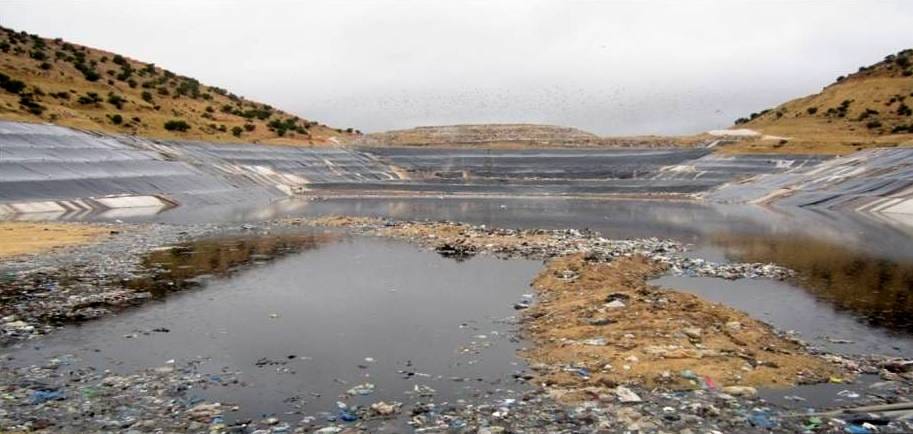Leachate: a chemical soup
Leachate is a chemical soup and a threat not only to the environment, but also to humans.
One element is essential to the very existence of life on earth. Every ecosystem depends on it, from the boreal tundra in Alaska to the great Amazon rainforest. It is in the air we breathe into our bodies; it carries soil nutrients from river deltas to the oceans. Water is the lifeblood of our planet and it all depends on its slow and winding, but endless journey through the world. Everything around us, even the ground we walk on, is washed and washed away by the rain. It seeps through the upper layers of the soil to end up in the water reserves of the groundwater tables.
Unfortunately, due to the very nature of water, other more harmful particles such as chemical compounds and industrial wastes from mines and landfills can also be dissolved. And the industrialized world we live in offers many opportunities for pollution to occur all the time.

Guidelines exist of course, for the proper disposal of old electronics, PCB coated shells and trucks overflowing with plastic. But regulations barely manage to oversee the formal market, and large parts of the world remain invisible to those who want better legislation. Developing countries, ill-equipped for this immense task of processing and recycling waste, are mainly burdened by the enormous amount of toxic waste produced by industrialized countries.
Leachate is a term generally unknown to the layman, but widely used in environmental science and waste management. It describes the phenomena of water pollution, often in conjunction with landfills or mining operations. Depending on the type of landfill, any element, from faeces to heavy metals and inorganic compounds such as: calcium, magnesium, sodium, potassium, ammonium, iron and sulphate can infiltrate the water tables surrounding groundwater. Municipal landfills where solid waste is stored usually generate such a concentrated “chemical soup” that even small amounts can be a cause for concern if exposed to water.
Even with existing regulations, accidents do occur, such as the one at the East Taphouse (Connonbridge) landfill two years ago. An unknown amount of liquid poured into nearby streams transformed the algae which turned a bright orange color. The site had been operational since 1969 with a 22-year extension. The lowest layer of the liner (usually a clay layer) probably kept the leachate from leaving the landfill and was carelessly flowing out. There followed a natural disaster for the local population and economy, as well as for the environment of course.
Our freshwater reserves are not infinite and droughts linked to climate change are reducing them even more regularly. Taking care of our water supplies must be a top priority, especially in areas of industrial activity such as mining or landfills. But the responsibility for a better future also lies in the sphere of the consumer that we are. We can no longer ignore easy-to-do tasks like sorting and recycling waste before disposal. Let’s all act responsibly!


